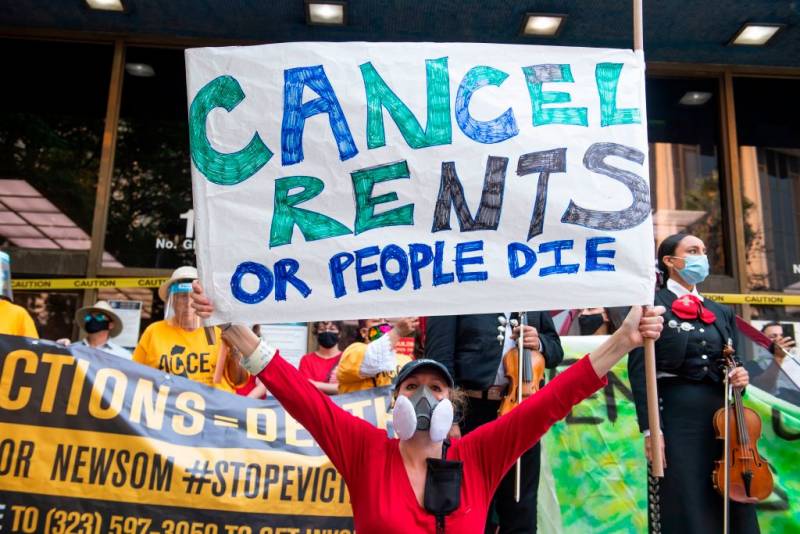Despite these concerns, the California Rental Housing Association, a group that represents mostly small landlords, criticized the extension bill, saying “enough is enough.”
“As the state has reopened and the pandemic regresses, there is no longer a need to have a statewide eviction moratorium,” said lobbyist Kate Bell, who represents the organization.
Some tenant advocates are also blasting the bill for overriding stronger, local protections for renters in some areas – including those in San Francisco and Los Angeles County.
Madeline Howard, a senior staff attorney at Western Center on Law and Poverty, said that loophole in the law is “bad public policy,” because in many cases, local laws add protections not covered by the statewide law.
“We’re blocking these local protections that would have helped people for a time period that is not covered at all or addressed at all by the state law,” she said. “So there’s this fundamental mismatch there.”
Speaking at a Senate hearing on Thursday morning, Sen. Scott Wiener, D-San Francisco, said he intended to vote against the bill for that reason.
“We want to locally protect our renters,” he said. “We should not be stopping cities from stepping in to protect renters who have been harmed by COVID.”
Some lawmakers also questioned whether the state would be able to clear its existing backlog of applications by June 30. The PolicyLink analysis found that, at the current pace, clearing that backlog could take until Thanksgiving.
“We’re extending time to help a process that has been slow and riddled with problems, without any discussion about putting more people on board to help manage this in a quicker, more efficient way,” said state Sen. Sydney Kamlager, D-Los Angeles, at a Senate Appropriations Committee hearing Wednesday.
A letter from Gustavo Velasquez, director of the California Department of Housing and Community Development, which administers the program, asked the bill’s authors to extend the eviction protections an additional month — until July 31 — to give his agency more time to clear the applications in the queue.
“Without additional time, there is a significant risk that tenants who have been notified of payment approval, but who have not yet received their payment, may self-evict,” Velasquez wrote. “Unlike other relief programs, the timing of the receipt of rental assistance is inextricably linked to potential legal actions, with serious consequences if the timing is not perfectly aligned.”
Velasquez said his department is now processing as many as 10,000 applications a week.
But at Wednesday’s Senate hearing, the bill’s authors doubled down on the June 30 deadline, emphasizing that part of the problem has been the slow distribution of federal funds to the state. They noted the Legislature in February agreed to loan money from the state’s general fund to the program to expedite payments.
“It’s our hope that that will give us enough time to honor all the commitments that we’ve had,” said Assemblymember Buffy Wicks, D-Oakland, a co-author of the bill.

